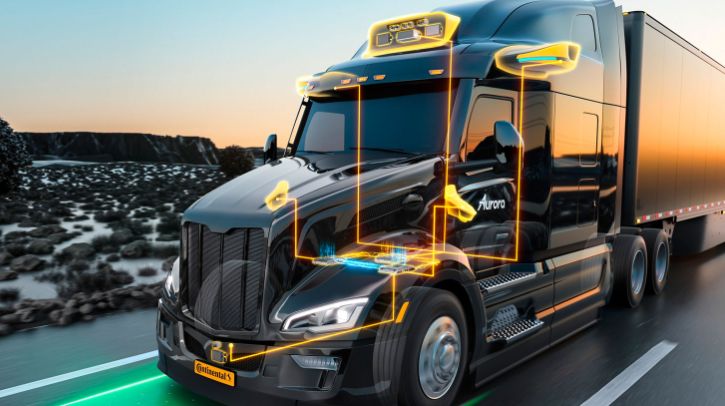A mobility study by INFAS on behalf of Continental in Germany, China, France, Japan and the USA shows widespread acceptance of self-driving trucks. It surveyed 1,000 people and the full results are set to be published in October 2024.
In Germany, 47% believe driverless trucks will be popular; in the US and China these figures are 62% and 92%, respectively. More importantly, almost 60% in Germany view autonomous trucks as a solution to driver shortages. And 47% believe these trucks will improve traffic flow and reduce congestion.
Philipp von Hirschheydt, executive board member for Continental’s automotive group sector, said, “We’re delighted that the majority of respondents already see the benefits of autonomous trucks. With our technologies, we’re helping to further increase this acceptance.”
In many countries, the transport industry is suffering from a shortage of drivers, while demand for goods continues to rise. A study found that Germany was short of at least 70,000 truck drivers in 2023. The switch to autonomous trucks will enable fleet operators and brands to reduce operating costs and delivery time. It will also obviate the need for breaks during long haulage. These self-driving trucks can increase road safety and reduce fuel consumption, helping fleets meet CO2 targets.
However, the study also reveals some skepticism. In Germany, France and the USA, around 60-65% of respondents have safety concerns, while in Japan the figure is 70%. There is less skepticism in China.
Continental’s previous mobility studies over the last 10 years point toward an increasingly positive outlook for automated passenger car driving. Since 2013, the share of respondents in the USA, China and Japan who think automated driving makes sense has increased significantly. The same trend has also been noted in Asian countries, with an 11% increase to 90% in China.
The new study delves into autonomous cars and finds that participants in Germany with cars registered in 2020 or later are more likely to embrace automated driving. A similar response has been noted to questions about whether automated driving will become part of everyday life within the next five to 10 years. The findings imply that respondents who encounter modern assistance systems are also more open to automated driving.
In 2023 Continental partnered with US company Aurora to develop autonomous trucks, with production slated for 2027. Aurora has been testing self-driving trucks on public highways for a few years.


